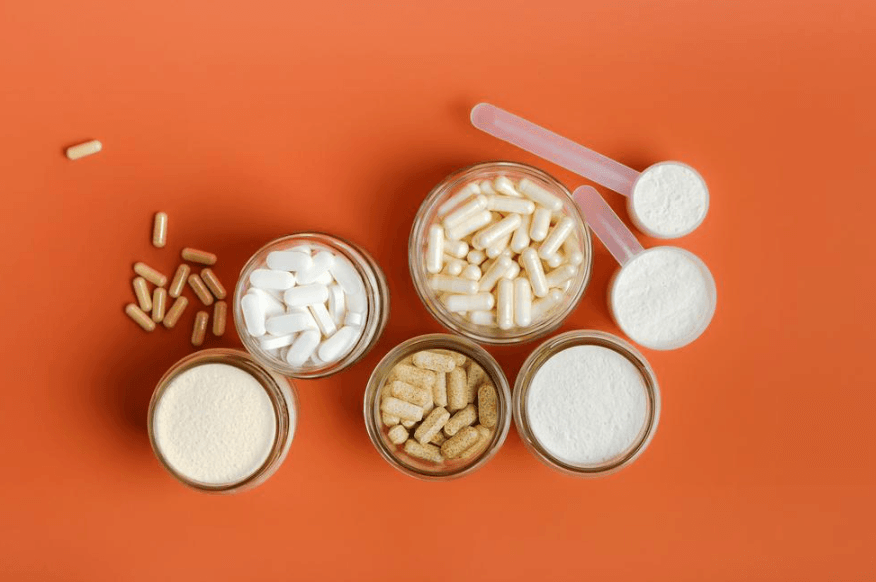Why Antioxidants Don't Slow Down Ageing and What Really Works

In recent years, the efficacy of antioxidants in slowing down the aging process has been widely debated. Despite their popularity, research suggests that antioxidants may not be the key to longevity that many believe them to be. Instead, more comprehensive approaches, such as those offered by Ageless You Daily, which targets multiple aging mechanisms, may provide more significant benefits.
The Myth of Antioxidants
Antioxidants, including vitamin A, vitamin E, coenzyme Q10, beta-carotene, and acetyl-cysteine, are known for their ability to neutralize free radicals—reactive particles that can damage DNA, proteins, and cell membranes. The accumulation of such damage over time has been thought to contribute to aging, leading to the widespread belief that antioxidants can slow this process and extend lifespan.
However, extensive research over the past two decades has not supported this notion. Large-scale studies and meta-analyses, involving hundreds of thousands of participants, have found no significant evidence that antioxidants extend lifespan or reduce mortality . In some cases, certain antioxidants, like vitamin A, vitamin E, and beta-carotene, were associated with increased mortality risks .
The Dangers of Antioxidants

Not only do antioxidants fail to extend lifespan, but they can also pose risks. Some studies have shown that antioxidants can increase the risk of cancer or aid in cancer metastasis. This is because cancer cells, which are highly metabolically active, produce large amounts of free radicals. Antioxidants can neutralize these free radicals, potentially aiding the survival and spread of cancer cells.
Moreover, antioxidants can counteract the benefits of exercise. Exercise-induced free radicals activate cellular defense mechanisms, helping to protect against aging and disease. Taking antioxidants to recover from exercise can negate these beneficial effects .
Understanding Free Radicals and Longevity
Interestingly, free radicals, the very substances antioxidants aim to neutralize, may play a role in promoting longevity. Research has shown that organisms producing more free radicals can live longer. For instance, genetically modified worms that produce more free radicals live 32% longer, while exposure to substances that increase free radical production can extend lifespan by up to 58% .
This paradox is explained by the concept of hormesis, where low levels of stressors (like free radicals) activate the body’s repair mechanisms, ultimately leading to increased resilience and longevity. This principle underlies the benefits of exercise: the temporary increase in free radicals from physical activity enhances the body’s ability to handle stress and repair itself.

The Complexity of Ageing
Ageing is a complex process influenced by numerous factors beyond oxidative stress. Researchers have identified 12 primary mechanisms of aging, including telomere shortening, cellular senescence, and stem cell exhaustion. Addressing these interconnected pathways requires a multifaceted approach.
Beyond Antioxidants: The Holistic Approach of Ageless You Daily
To effectively slow down ageing, it's crucial to address multiple underlying mechanisms, not just oxidative damage. Ageless You Daily, a science-backed longevity powder, embodies this holistic approach. It targets various aging processes, including:
- Epigenetic Dysregulation: Modulating gene expression to maintain cellular health.
- Protein Accumulation: Reducing the buildup of damaged proteins that can impair cell function.
- Mitochondrial Dysfunction: Enhancing mitochondrial health to improve energy production and reduce cellular aging.
These comprehensive strategies are supported by scientific research. For example, studies have shown that interventions targeting epigenetic regulation and mitochondrial function can significantly impact lifespan and healthspan. .
Ageless You Daily is formulated with ingredients that impact these diverse aging mechanisms. By incorporating compounds that support DNA repair, reduce inflammation, and enhance cellular function, Ageless You Daily offers a more effective strategy for promoting longevity and overall health.
Conclusion
While antioxidants have long been touted as anti-aging miracles, scientific evidence suggests otherwise. Their limited efficacy and potential risks highlight the need for a broader approach to aging. Ageless You Daily exemplifies this comprehensive strategy by targeting multiple aging pathways, offering a promising solution for those seeking to extend their healthspan and lifespan.
For those interested in a scientifically grounded approach to aging, Ageless You Daily provides a valuable addition to a longevity based regimen. By looking beyond antioxidants and addressing the complex mechanisms of aging, we can better support our bodies in the quest for longevity and vitality.
References:
Meta-analysis on antioxidants and mortality (https://www.ncbi.nlm.nih.gov/pmc/articles/PMC2931732/)
Research on antioxidants and cancer
(https://pubmed.ncbi.nlm.nih.gov/15054093/)
Study on free radicals and longevity in worms
(https://journals.plos.org/plosgenetics/article?id=10.1371/journal.pgen.1000361)
Review on epigenetic regulation and aging (https://www.ncbi.nlm.nih.gov/pmc/articles/PMC5865605/)
Research on mitochondrial function and aging
(https://www.ncbi.nlm.nih.gov/pmc/articles/PMC6342524/)



